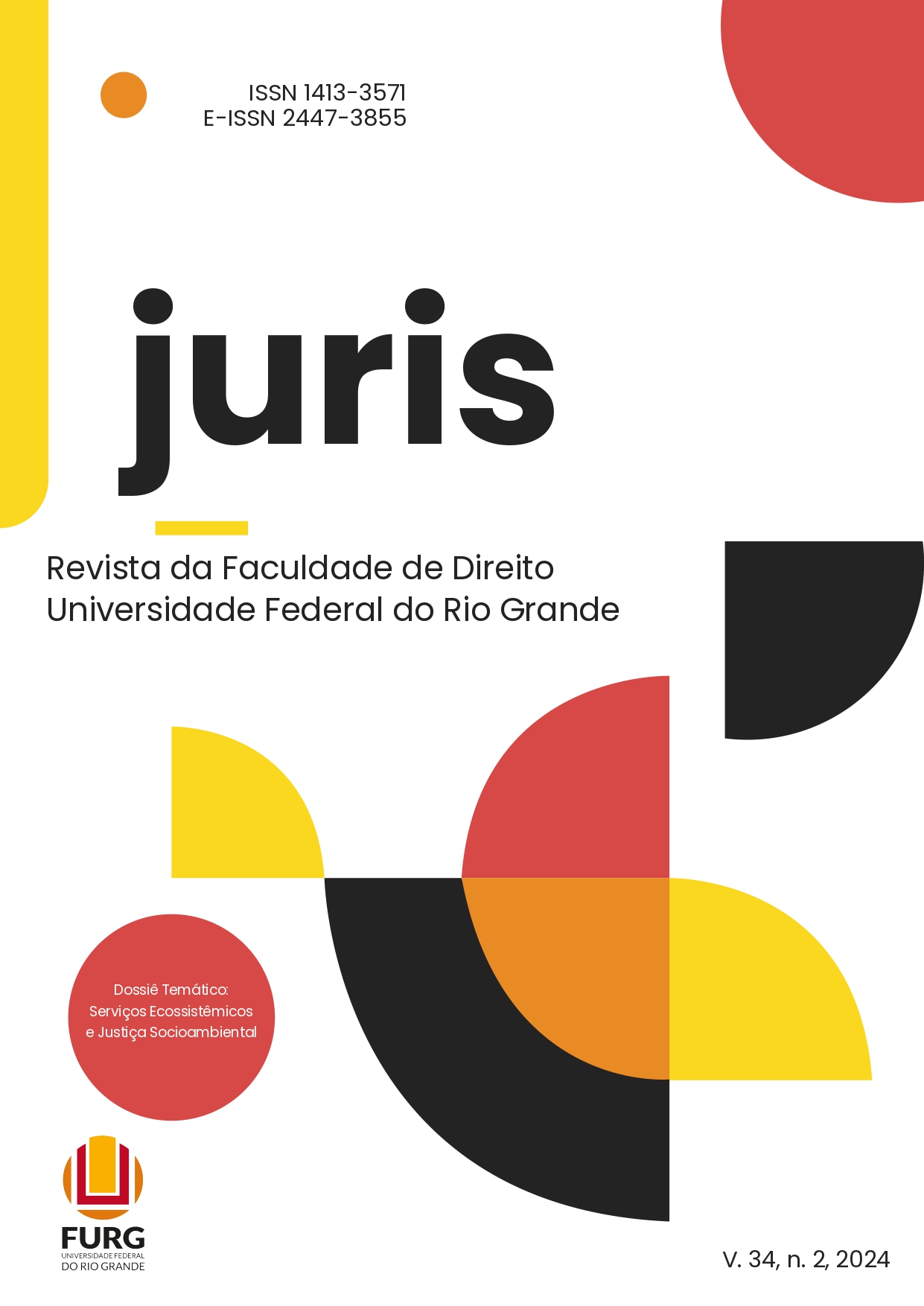The articulation between ecological corridors and payment for environmental services as a form of financing for the preservation of ecosystems.
DOI:
https://doi.org/10.14295/juris.v34i2.17781Keywords:
payment for environmental services, biodiversity, ecological corridors, financingAbstract
Increased pressure on ecosystems has raised concerns about the loss of biodiversity, demanding the creation of socio-environmental management strategies to address environmental issues, adopting dynamic methods as a basis for sustainable territorial development policies. One of the new instruments is the Payment for Environmental Services (PSA), which acts as a public policy aimed at environmental conservation. This model assumes that those who benefit from ecosystem services must contribute financially to those who preserve them. By combining PSA with ecological corridors, which consist of connecting conservation areas to mitigate habitat fragmentation, it is possible to protect ecosystems. The study is analytical, exploratory and descriptive, conducted using the deductive method. The general objective is to analyze the financing possibility offered by Payment for Environmental Services as a mechanism for biodiversity conservation. It is observed that the PSA contributes positively to making it possible to adhere to the law and not be restricted to the possibilities of economic benefit, based on the “provider-receiver” principle. Therefore, it is an important option to appreciate the environmental elements of a specific territory, while economic development alternatives need to be considered for development. It is concluded that by implementing the financing of conservation actions through ecological corridors through PSA linkage, it is possible to mitigate the impacts of degradation and fragmentation of territories on biodiversity, thus allowing for the improvement of environmental quality.
Downloads
Downloads
Published
How to Cite
Issue
Section
License

This work is licensed under a Creative Commons Attribution 3.0 Unported License.
Ao encaminhar os originais, o(s) autor(es) cede(m) os direitos de publicação para a JURIS.







